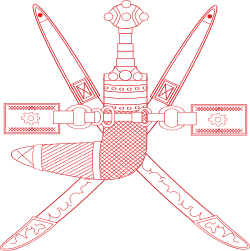| | |||||||||||||||
| |||||||||||||||
All 84 seats in the Consultative Assembly | |||||||||||||||
| Turnout | 62.7% | ||||||||||||||
|---|---|---|---|---|---|---|---|---|---|---|---|---|---|---|---|
This lists parties that won seats. See the complete results below.
| |||||||||||||||
 |
|---|
|
| Cabinet |
General elections were held in Oman on 27 October 2007, for advisory Consultative Assembly of Oman. [1] Political parties are banned in Oman, so all the candidates ran as independents.